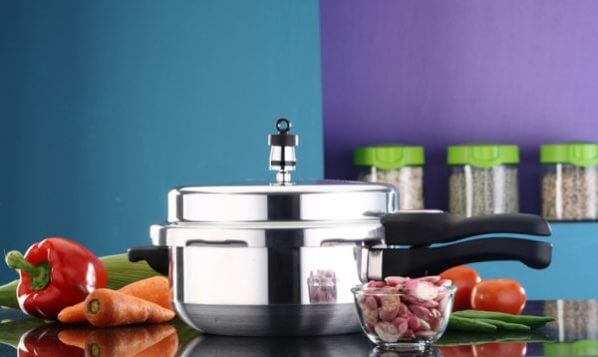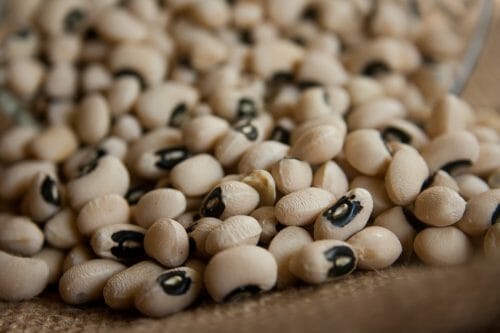Slow cookers are always handy when it comes to preparing delicious and tender recipes over a long period. On the other hand, pressure cookers are quite efficient in preparing almost the same food in the shortest possible time.Have you ever challenged the capability of your favorite slow cooker? If not, better read this post before facing any situation where your cooker ends up embarrassing you.

Situations discussed in this post will highlight:
- Why you should choose pressure cookers in place of slow cookers
- How a pressure cooker can help you when a slow cooker may not
#1. If you haven’t planned for meals
Slow cooking will not help when you need to cook hard food in a limited time. You need proper planning and preparations for slow cooking. The real difference between a pressure cooker and a slow cooker is efficiency.
It’s more like an advantage, especially when you have nothing special in mind at the start of the day, but as soon as you get back from work, there’s something you want that would take hours to cook under normal circumstances.
A pressure cooker can cut the cooking time by up to 70% or even more. This is why 9 to 5 workers prefer pressure cookers in their kitchen, and they don’t normally plan for dinner until noon. So, pressure cookers are real life-savers for you, when:
- Uninformed guests arrive just before the meal and you’re ethically supposed to invite him or her in for a meal
- There are people in the house with different eating preferences
- You were invited somewhere and had to cancel your plans at the last moment
#2. If you have to deal with multiple dishes
Preparing meals for parties and get-togethers takes hours. You are supposed to run ahead of time in order to prepare multiple dishes. And in doing so, there’s always a risk of overcooked or undercooked food. Pressure cookers can save you from these issues.
Third generation pressure cookers come with a lot of functions. They can cook, stew, brown, braise and even bake your food. Plus, there are options to cook ingredients without mixing them. This means you can prepare for more than one meal with pressure cookers.
Needless to say, they’re quick, so you can always organize recipes and prepare them one by one.
#3. If you prefer veggies and beans
Small-sized foods such as beans and grains can fall apart and lose their flavor when they’re cooked in a slow cooker. The reason is, the distribution of heat is not equal throughout the container, and slow heating makes the beans near the bottom fall apart, while those on the top may remain under-cooked. To avoid that, you’re required to stir the recipe a few times until it is cooked.

This is not the case with pressure cookers. In fact, experts recommend pressure cookers for cooking beans because it keeps vegetables in proper shape and doesn’t make them mushy. The reason is, the amount of liquid and the steam prevent the beans from splitting apart and make them tender at the same time.
So, for complete hands-off cooking, use pressure cookers for preparing beans.
#4. If you have limited space
Besides the benefit of saving time, your pressure cooker offers many other advantages that a slow cooker can’t. For example:
- A pressure cooker has a large space, which makes it handy for cooking food in bulk. Even for conventional cooking, all you need is to apply the lid without locking it and prevent pressure building. On the other hand, slow cookers are just meant for slow cooking, nothing more than that.
- There are plenty of recipes in which ingredients are supposed to be browned properly. A pressure cooker can saute or brown the ingredients.
So, a pressure cooker can help you save a lot of space, giving you a large pot to put different things in when you’re not cooking anything.
#5. If you need to can foods

This is something you cannot associate with slow cookers.
- In canning, the temperature needs to be set way above the normal boiling point, so that the hidden bacteria in it can be removed. Slow cookers cannot withstand the high heat because of the material used, whereas the pressure cookers’ material can withstand a high level of heat.
- Canners need to have enough space to accommodate a bottle of pickles or large cuts of meats and uncut vegetables. Then there has to be a distance between the bottles hanging in the pot and the liquid beneath them. Slow cookers do not have that much space because of the process they follow.
#6. If you cook at high altitudes
It is important to know that food needs to have the right temperature and pressure to be cooked properly. Fluctuations in temperature can affect the quality of food.
For places such as Alaska, Utah and others conventional cooking becomes impossible. The reason is, at high altitudes the boiling point of water is reduced, which makes the food undercooked, even raw in most situations.
Here, you have no other choice than a pressure cooker – a tool that creates its own internal environment to cook food. You can rely on electric pressure cookers to cook food (lentils, beans, and veggies) at high altitudes. They might take a little longer, but the food will be cooked properly.
Finally
Both slow cookers and pressure cookers offer uncompromised quality of food, but there are certain circumstances that a pressure cooker is simply the best choice:
- Pressure cookers have durable material to withstand high heat. So, you can cook your food in a limited time.
- Large pressure cookers offer enough space to handle food canning jobs.
- Pressure cookers have a locking lid with all the necessary components to give an airtight seal, making sure that the food remains unaffected by the external environment.
Now that you know the advantages of pressure cookers, you should try one and see how you can benefit from it.
I am just looking into this right now, so the timing was great 🙂